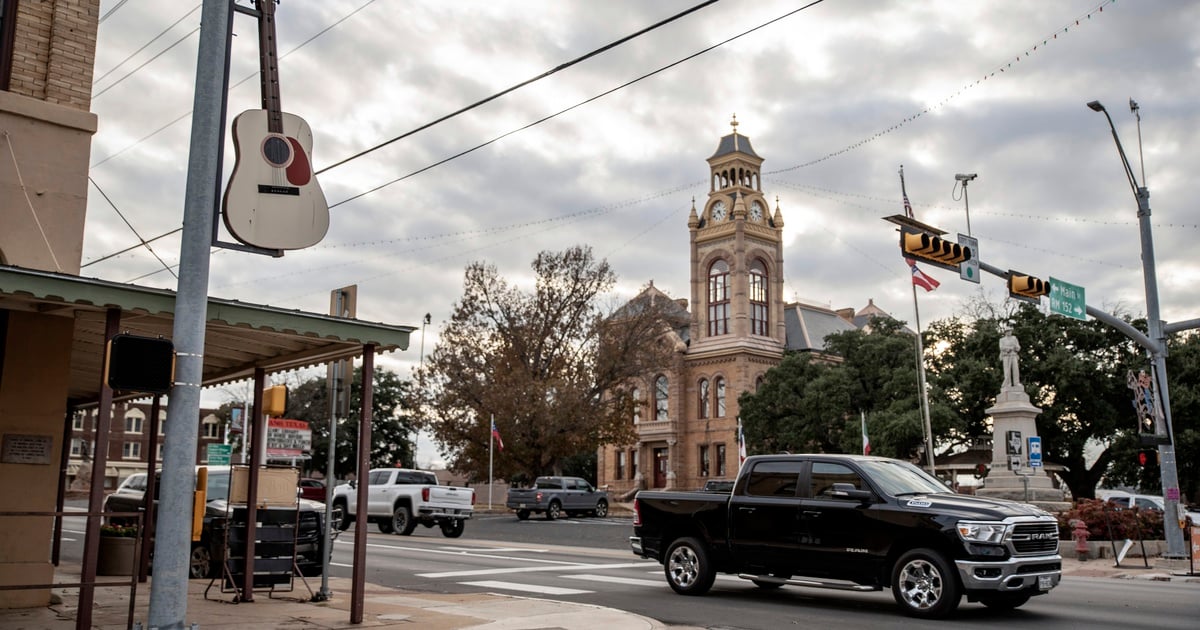Even in conservative corners of Texas, efforts to crack down on abortion travel are meeting resistance with some local officials who support Texas’s strict abortion laws, expressing concern that the efforts go too far.
LLANO, Texas — No one could remember the last time so many people packed into City Hall.
As the meeting began on a late August evening, residents spilled out into the hallway, the brim of one cowboy hat kissing the next, each person jostling for a look at the five city council members who would decide whether to make Llano the third city in Texas to outlaw what some antiabortion activists call “abortion trafficking.”
For well over an hour, the people of Llano — a town of about 3,400 deep in Texas Hill Country — approached the podium to speak out against abortion. While the procedure was now illegal across Texas, people were still driving women on Llano roads to reach abortion clinics in other states, the residents had been told. They said their city had a responsibility to “fight the murders.”
The cheers after each speech grew louder as the crowd readied for the vote. Then one woman on the council spoke up.
“I feel like there’s a lot more to discuss about this,” said Laura Almond, a staunch conservative who owns a consignment shop in the middle of town. “I have a ton of questions.”
More than a year after Roe v. Wade was overturned, many conservatives have grown frustrated by the number of people able to circumvent antiabortion laws — with some advocates grasping for even stricter measures they hope will fully eradicate abortion nationwide.
…



No, it’s not. The “commerce clause” in the Constitution gives Congress the power to regulate interstate commerce, not the states. States are separate legally. They can’t decide what other states do in their own territory, and they can’t pass laws restricting people traveling for that commerce.
If something is legal in one state and illegal in another, simply passing through a state to get to another literally can’t be restricted. This is the literal definition of the commerce clause, especially because healthcare in the US is a for-profit enterprise.
In fact, the healthcare facility could sue Texas in civil court for causing them damages by reducing their customers. It’s a direct harm to their business.